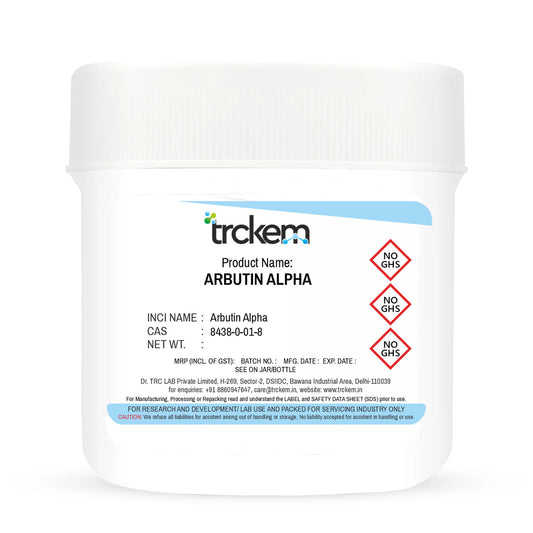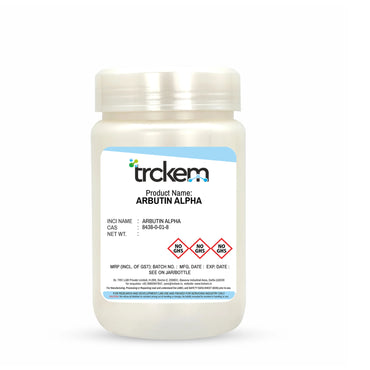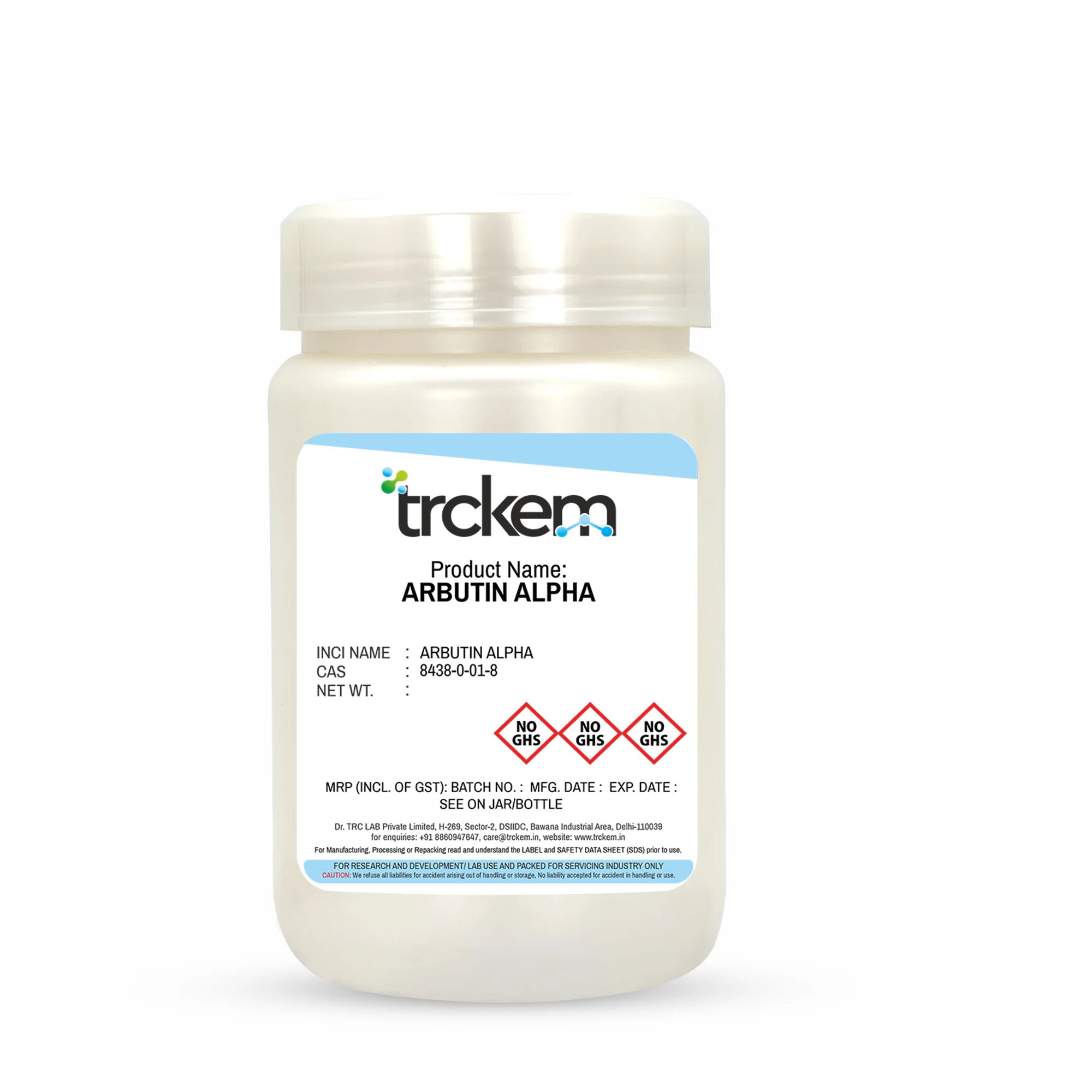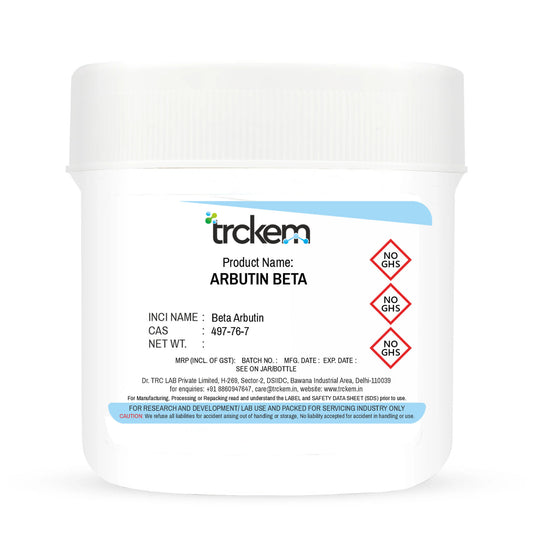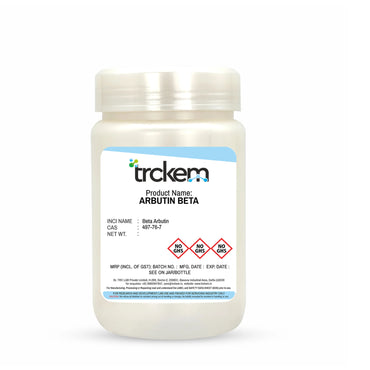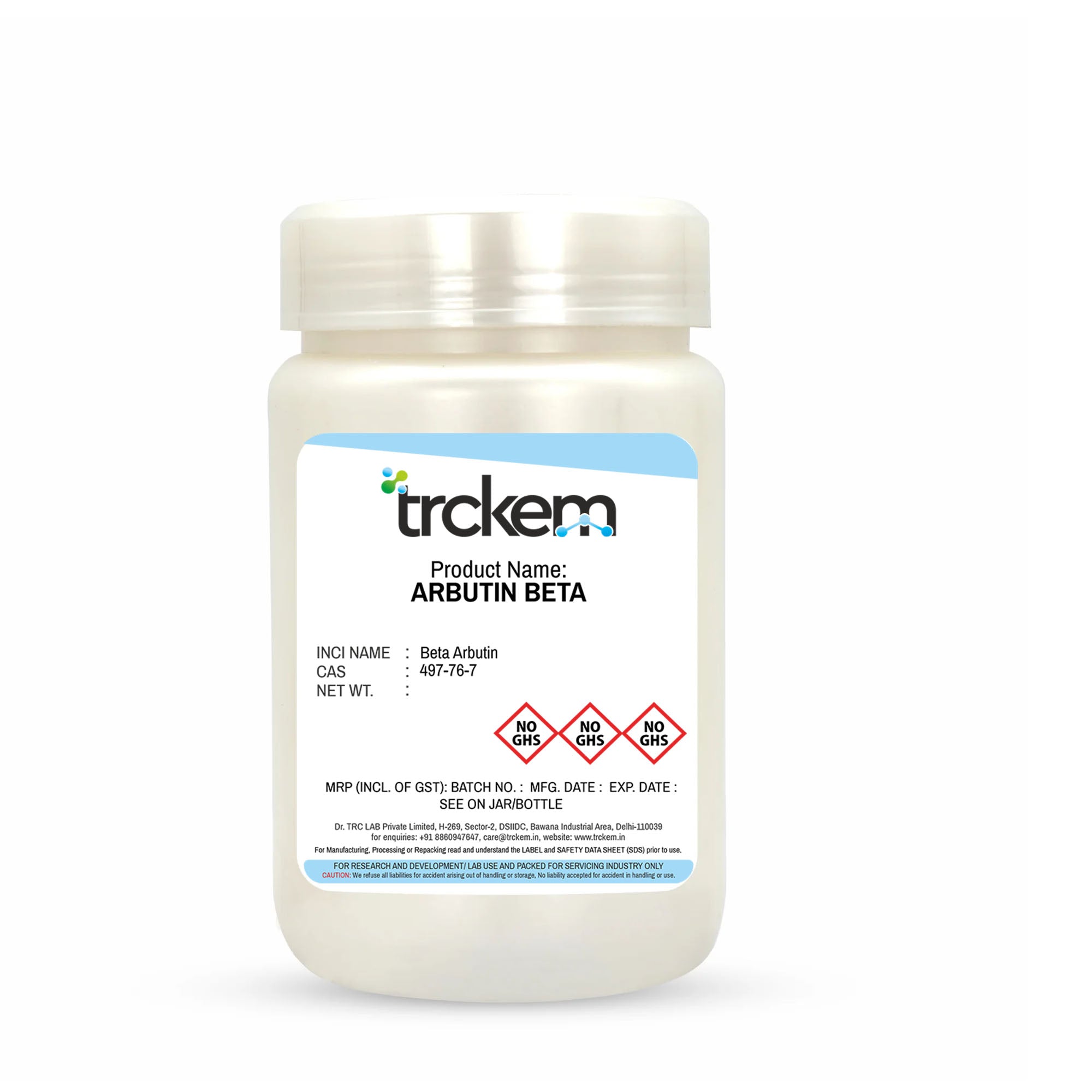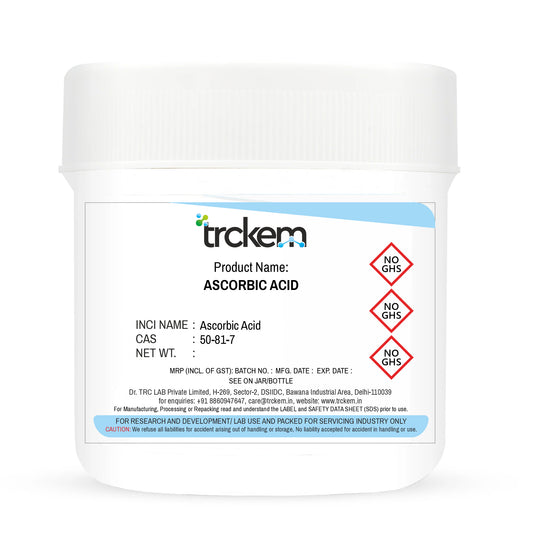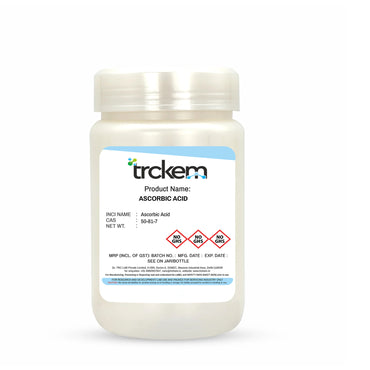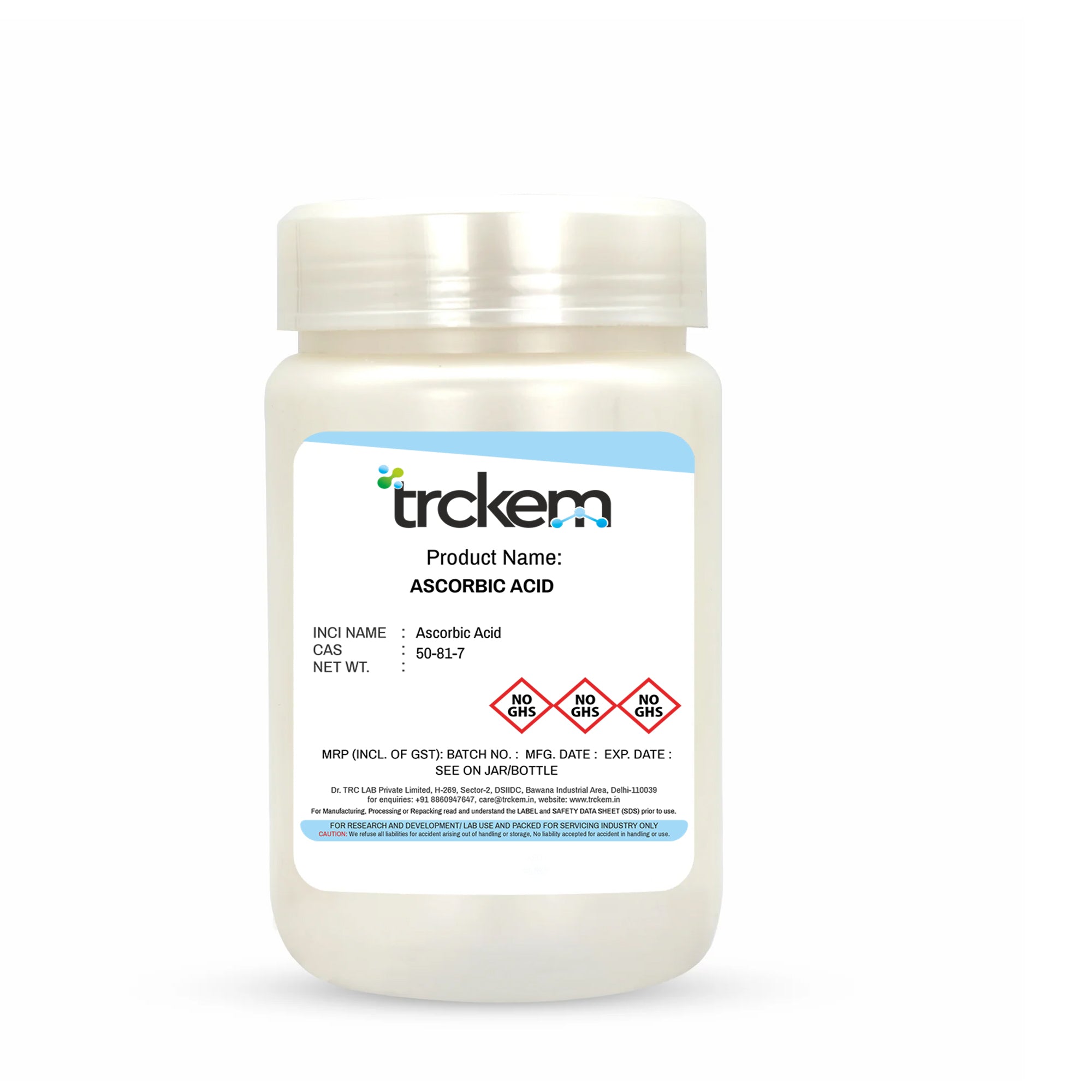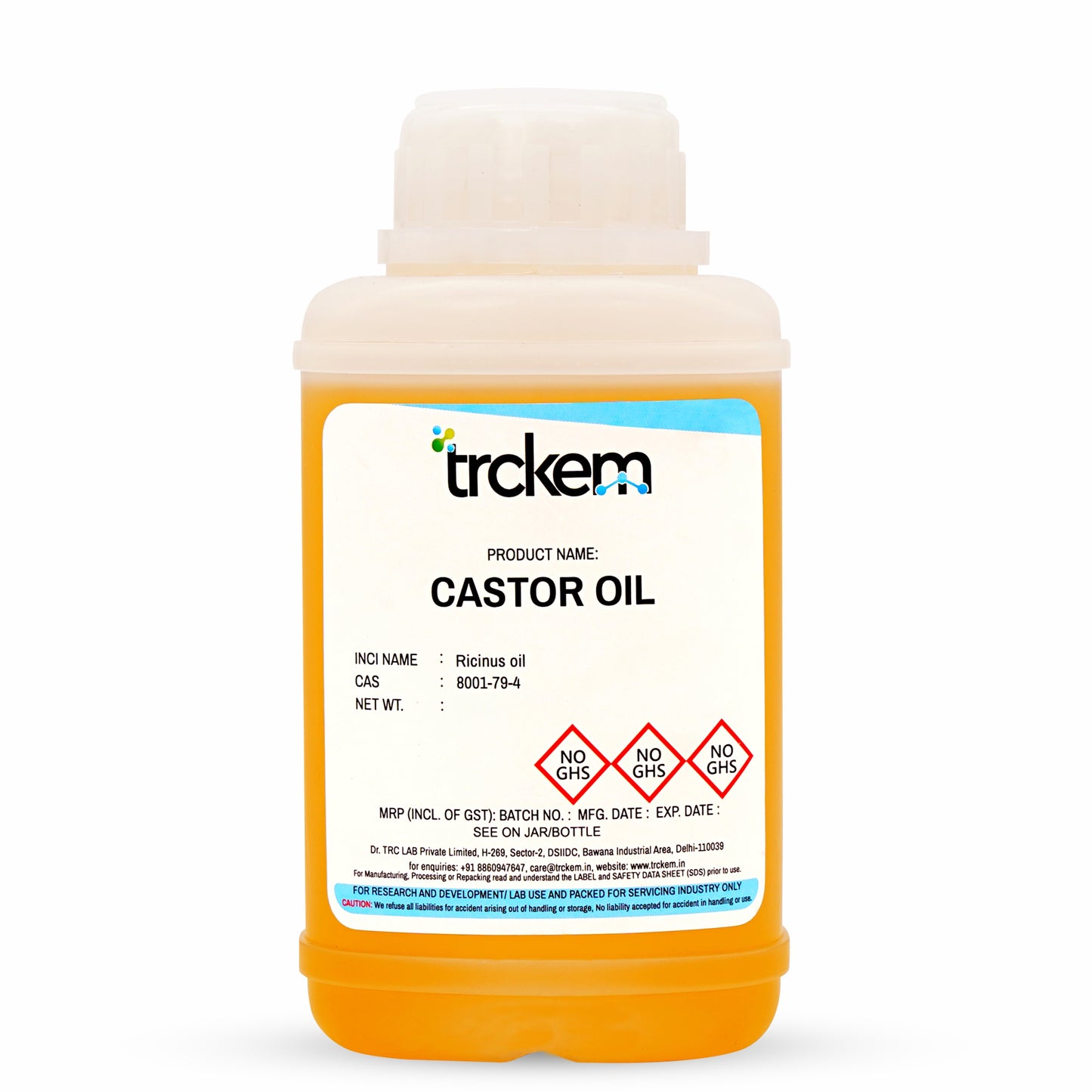
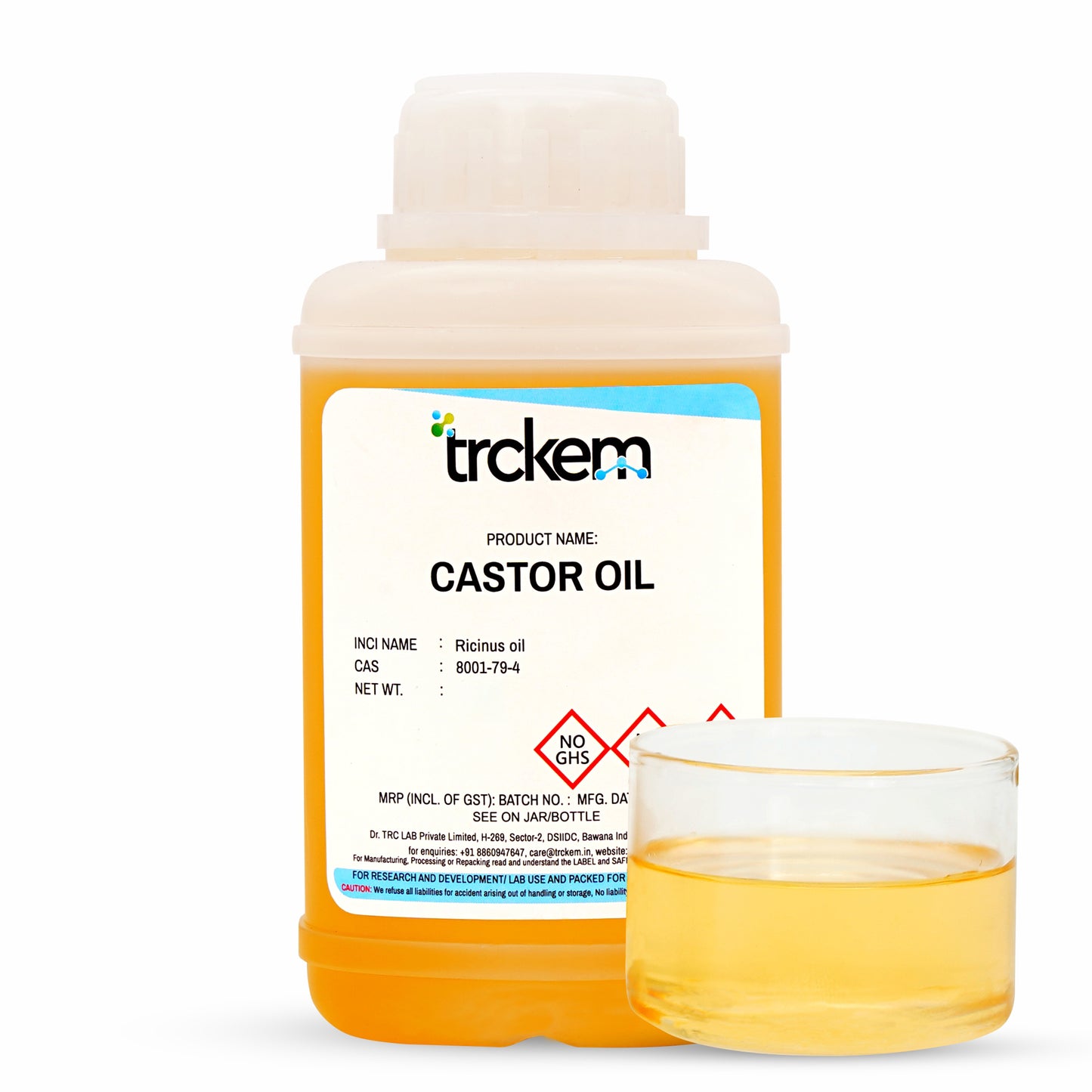
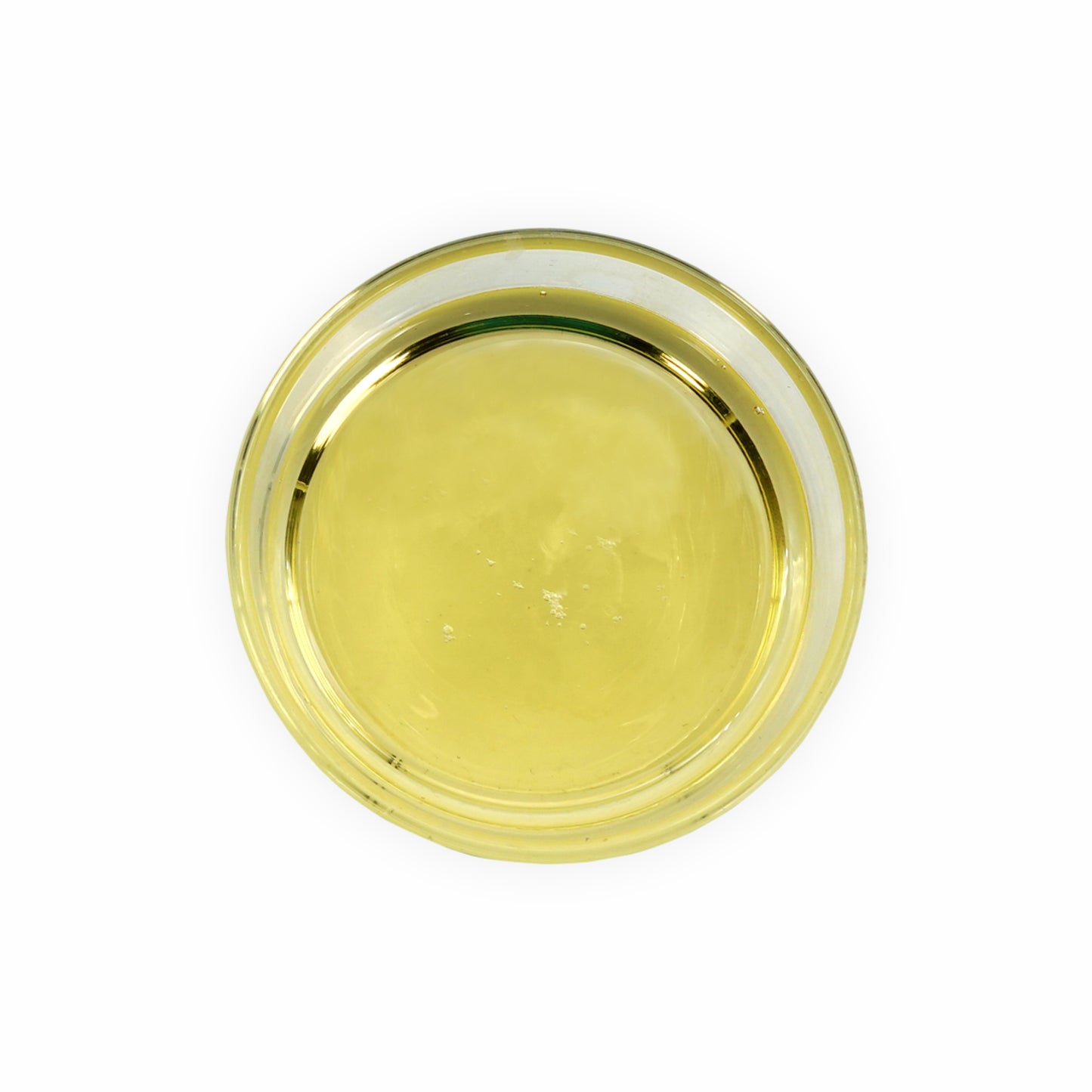
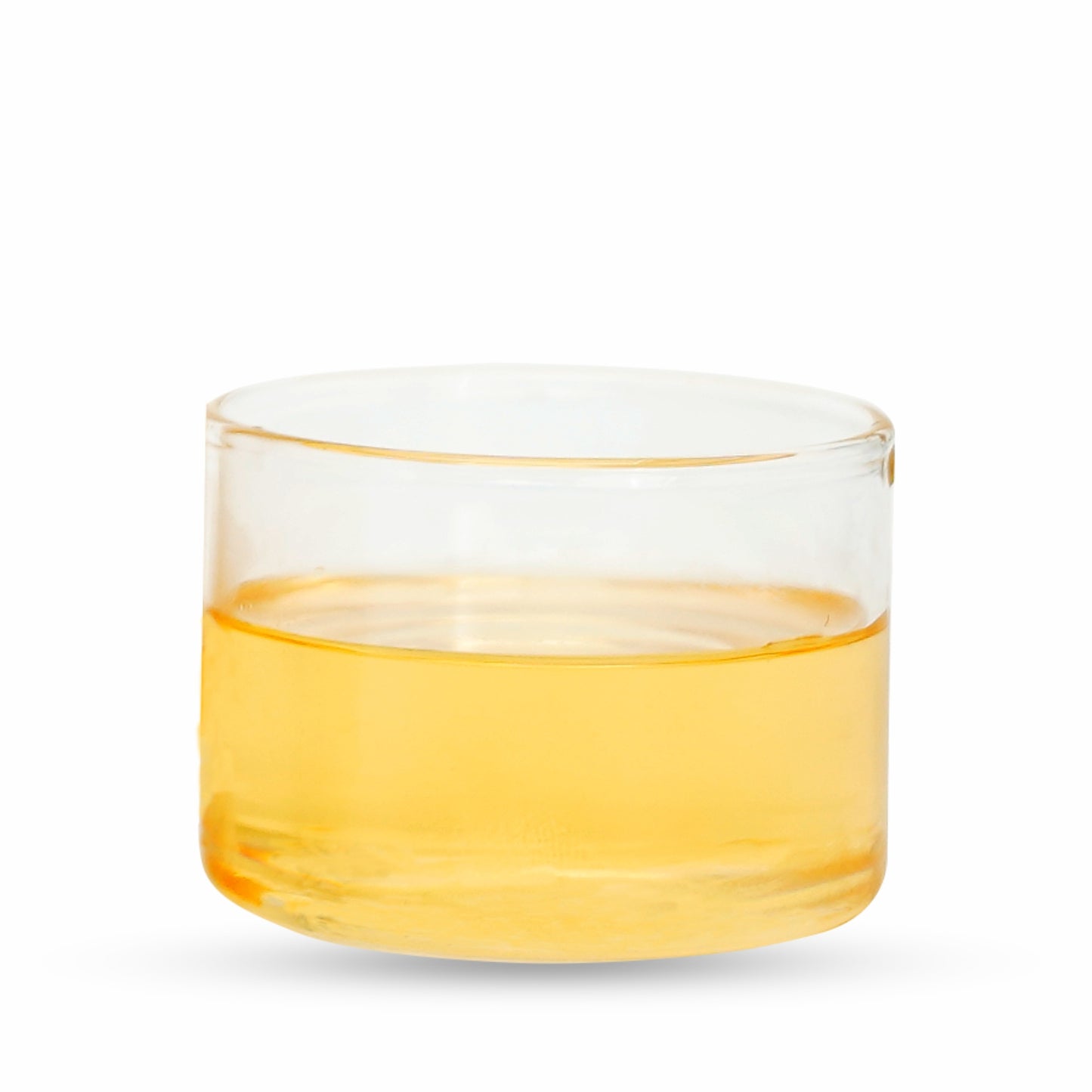
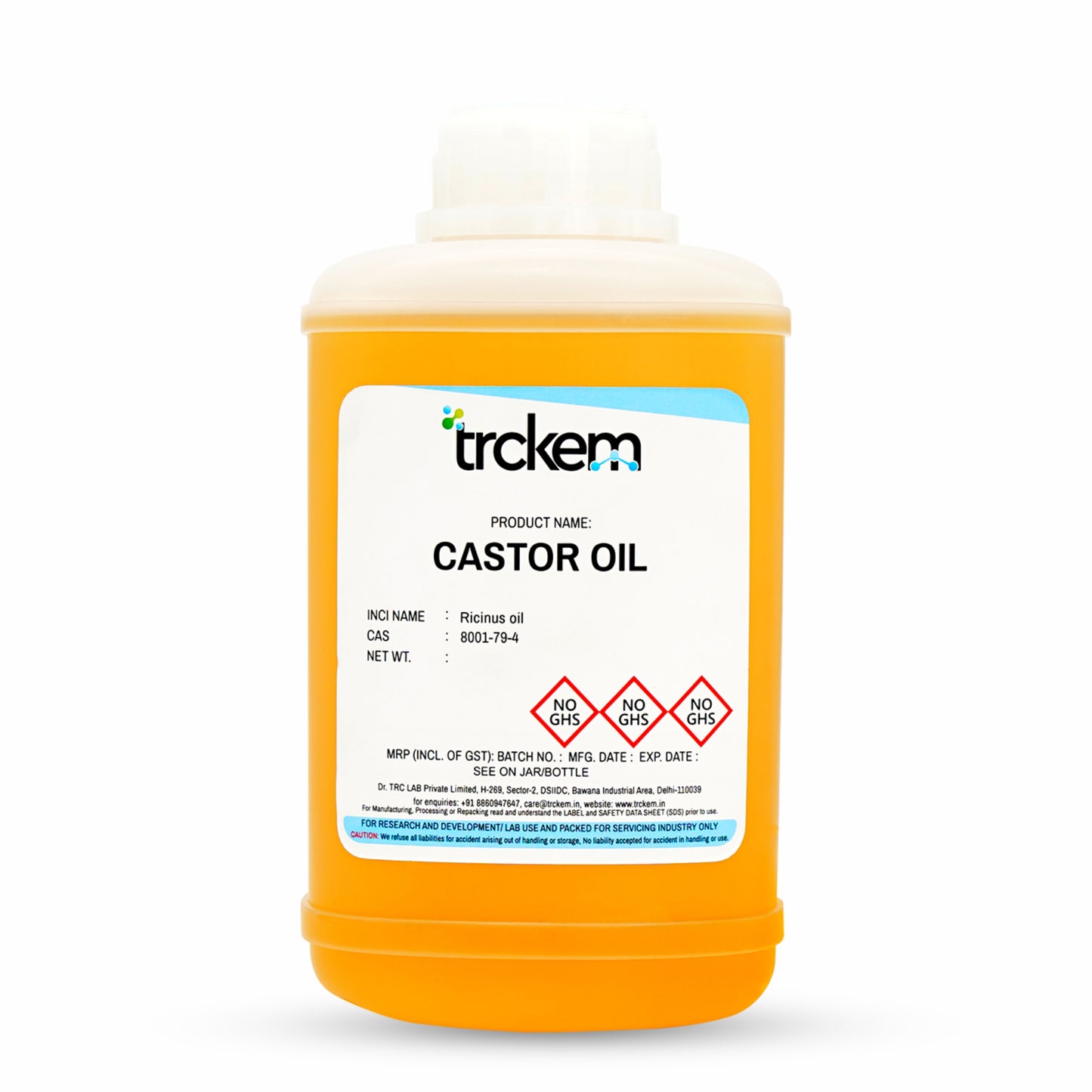
THE STORY OF CASTOR OIL

Castor Oil: The Rich, Gloss-Enhancing Oil for Skin, Hair & Lip Care
Castor Oil is a highly stable, thick vegetable oil pressed from Ricinus communis seeds. Naturally rich in ricinoleic acid, it offers strong film-forming, moisturizing, and gloss-boosting effects — widely used in lip care, hair oils, body butters, ointments, and conditioning emulsions. Known for both cosmetic and medicinal heritage.

Cold-Pressed from Castor Seeds, Refined for Cosmetic Purity
Castor seeds are cleaned, cold-pressed, and filtered to remove proteins and impurities. The resulting oil may be refined, bleached, deodorized (RBD) or supplied as virgin cold-pressed grade. TRCkem offers pharma, cosmetic, and hydrogenated grades depending on viscosity and clarity required in formulation.

Moisturize. Gloss. Condition.
Key benefits in personal-care formulations:
✅ Strong film-forming & gloss enhancement for lip and hair products
✅ Deep moisturization due to high ricinoleic acid content
✅ Supports scalp conditioning, lash & brow growth serums
✅ Adds cushion, slip & creamy payoff to emulsions and balms
✅ Stable, non-drying, ideal for hot-pour and anhydrous systems
Used in: lipsticks, glosses, mascara, hair oils, creams, thick lotions, ointments, salves, nail & cuticle oils.

Safe, Biodegradable & Globally Approved — Highly Formulator-Friendly
• Typical usage level: 2–100% (can be used neat or blended)
• Excellent compatibility with esters, butters, waxes & essential oils
• Stable to oxidation, long shelf life, non-comedogenic for most users
• Fully approved for leave-on and rinse-off cosmetics worldwide (EU, FDA, ASEAN, INCI listed)
• Store in cool, dark conditions to maintain clarity and odor neutrality
• Does not contain ricin — toxin is removed during oil pressing & filtration
Formulator’s Queries, We Answered
1. What is Castor Oil?
Castor oil is a natural vegetable oil extracted from the seeds of the Ricinus communis plant. It is widely used in personal care products due to its excellent emollient, moisturizing, and conditioning properties.
2. What is the CAS Number and INCI Name of Castor Oil?
CAS Number: 8001-79-4
INCI Name: Ricinus Communis (Castor) Seed Oil
3. What are the benefits of using Castor Oil in personal care products?
Deep Moisturization – Provides long-lasting hydration for skin and hair.
Natural Emollient – Helps to soften and smooth dry or rough skin.
Hair Growth Booster – Often used to promote healthier, stronger hair and reduce breakage.
Antibacterial & Antifungal Properties – Helps to soothe irritated skin and scalp conditions.
Thickening Agent – Adds texture and viscosity to cosmetic formulations.
4. What are the common applications of Castor Oil in personal care?
Skin Care Products – Used in creams, lotions, and lip balms for hydration.
Hair Care Products – Found in hair serums, conditioners, and scalp treatments.
Makeup & Cosmetics – Used in lipsticks, mascaras, and oil-based cleansers.
Soaps & Cleansers – Adds a rich lather and cleansing properties.
Massage Oils – Used as a base oil for body and scalp massage.
5. Is Castor Oil safe for use in personal care products?
Yes, Castor Oil is considered safe for topical use in personal care formulations. However, it should be used in appropriate concentrations, and individuals with sensitive skin should conduct a patch test before use.
6. Can Castor Oil cause skin irritation?
Castor Oil is generally well-tolerated, but in rare cases, it may cause mild irritation or allergic reactions in sensitive individuals. A patch test is recommended before full application.
7. Is Castor Oil environmentally friendly?
Yes, Castor Oil is a biodegradable, renewable, and plant-based ingredient, making it an eco-friendly choice for personal care formulations.
8. Are there alternatives to Castor Oil in personal care products?
Yes, alternatives include:
Jojoba Oil – A lightweight, non-greasy oil with similar conditioning properties.
Coconut Oil – Provides deep hydration and antimicrobial benefits.
Argan Oil – Rich in essential fatty acids, promoting skin and hair health.








